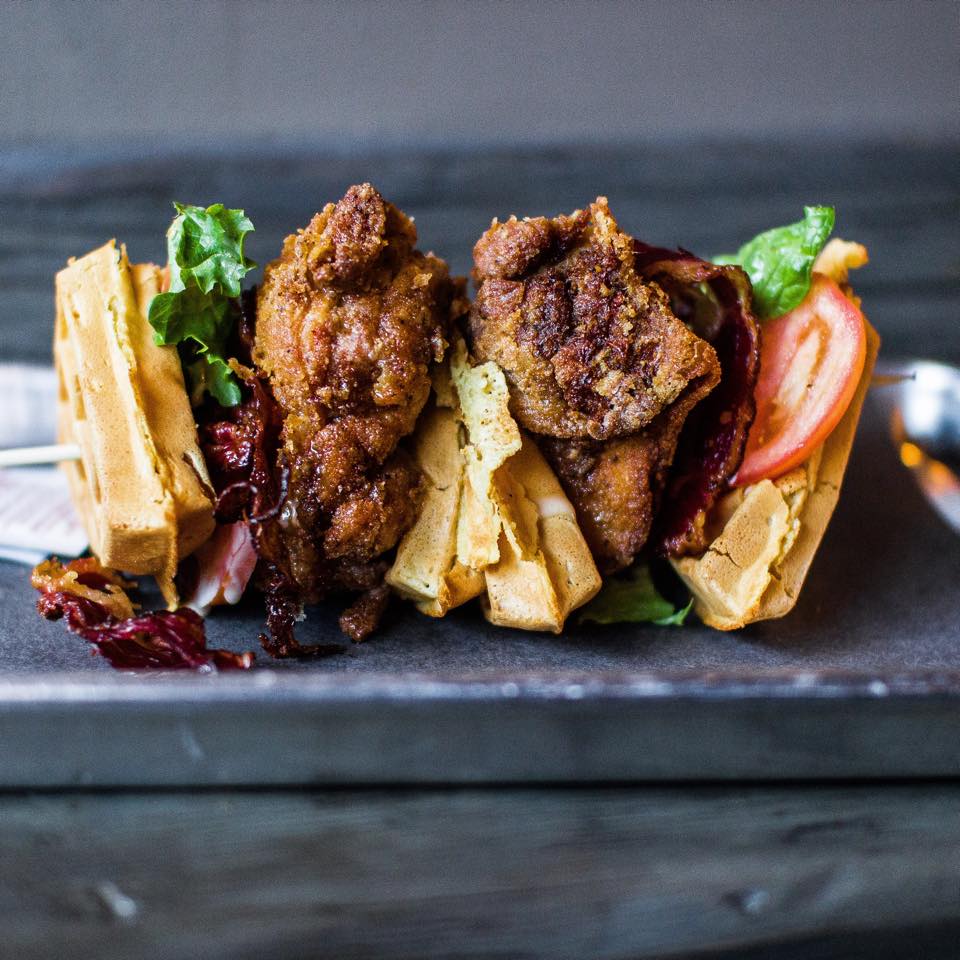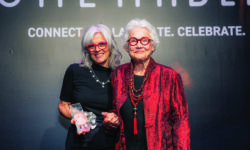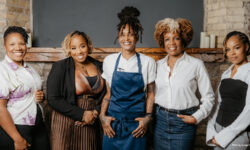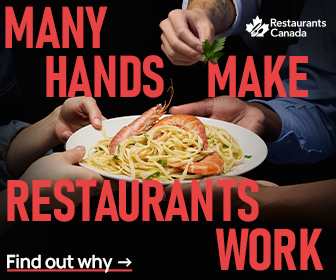Setting Trends and Building Community – Brian Butler
By Elle Asiedu, Co-founder, The Re-Seasoning Coalition

The Re-Seasoning Coalition is dedicated to increasing the representation of Black Canadians in foodservice through research, programming, and sharing real stories like Brian’s. Stay tuned for more profiles here on MENU.
You may not have heard of Brian Butler, but you’ve probably crossed paths with his culinary footprint.
Chicken and waffles.
Amazing parties with great food.
Roti skin chips with pineapple-mango salsa.
These are all Butler’s creations, each with an iteration of the original still floating across the GTA on some menu, food truck, or foodie’s wish list.
Despite his introverted nature, his career CV is one that most industry professionals would envy.
THE CARIBBEAN CONNECTION
Growing up in a Jamaican household, Butler learned to cook under the tutelage of his mother and grandmother, but his real interests lay in a field considerably less delicious.
“I was actually interested in graphic design because I like art,” he says.
The young entrepreneur, however, had no love for client management. “To be honest, once I got into the field, I didn’t like dealing with clients because they wanted designs that I thought were boring. I couldn’t work like that,” Butler explains, looking back.
“So I switched gears and applied to George Brown.”
In 2006, the future chef got his first taste of foodservice in the college’s culinary program where his key responsibilities were to learn, execute, and repeat.
Unlike his peers who transitioned from going to school to working in European restaurants, Butler chose to dive back into Caribbean culture, hoping to demonstrate he could further classic recipes without being rigid or repetitive.
His first job post-graduation was at the former Irie Food Joint on Toronto, ON’s Avenue Rd., where the owner was Black and the head chef was Russian.
“The head chef had a passion for Jamaican cuisine,” he laughs, speaking about his time as Irie’s Sous Chef. “I learned a lot from him, but I know he felt threatened by the specials I created that flew off the menu.”
After paying his dues with 14-hour shifts, stints in larger chains like Moxie’s and smaller pubs followed, but Butler wanted more money as a new parent and more fun in the kitchen.
A new chapter was about to begin.



KITCHEN CREATIVITY AT ITS BEST
Butler left the restaurant world to launch Massive Catering in 2010. He paid himself a better wage and ultimately broke the mold for the food associated with Black events.
Three years later, he pivoted to Brian Butler Cooks Meal Prep, creating customized meals to support his clients’ health and fitness goals. “I would do meals with Caribbean flair, cooking for 50 people, but they rarely ate the same thing twice,” he says with pride.
While busy with meal prep and food delivery, Butler was shopping around a disruptive and delicious idea.
The concept was Dirty Bird — originally to be named Lucille’s Chicken and Waffles in honour of his grandmother — a first-of-its-kind restaurant in Toronto.
“Nobody else was doing it at the time, so we were extremely popular,” he remembers. “Even Korean newspapers were writing about us.” The business was and still is owned by five partners, some of them strangers who believed in the idea. Despite the concept originating with Butler, he was never the face of the brand; a decision he regrets, considering the restaurants still feature his recipes.
Though the multi-hyphenate chef is running a catering business, Bless’ed Jamaican Food, he’s also finalizing plans for his next restaurant where he’ll continue focusing on the Black diaspora.
“With Dirty Bird, most of the people we hired were Black and I got to teach a lot of kids how to cook,” he says. Butler’s culture and community-first approach have allowed him to be successful in an industry he loves. “I’m a kid from Scarborough, so I wanted to give kids like me opportunities to grow. I’ll be doing that again with my next restaurant.”










